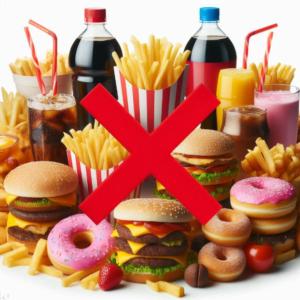Discover Foods That Disrupt Sleep Quality and Trigger Insomnia Symptoms
Numerous foods have the potential to adversely affect your sleep patterns, creating barriers that hinder your ability to achieve the restorative rest essential for your body’s optimal functioning. But which particular foods are especially infamous for disrupting sleep quality? In this in-depth article, we will explore some of the most problematic dietary choices known to contribute to insomnia and various related sleep issues, enabling you to make informed decisions about your diet.
Experiencing insomnia involves not just the challenge of falling asleep but also the struggle to sustain sleep throughout the night. The consequences of insufficient sleep can leave you feeling completely drained during the day, affecting your concentration and overall productivity in daily activities. This deficiency in quality rest can severely impact your mood, resilience, and overall immunity. Consequently, sleep deprivation can lead to a multitude of health complications and illnesses. While various factors contribute to the onset of insomnia, your diet plays a crucial role in this complex problem.
Evaluate the Impact of Caffeinated Beverages on Sleep Quality
Caffeine, a naturally occurring psychoactive compound found in widely consumed beverages such as coffee, tea, and various energy drinks, can significantly affect your ability to fall asleep and maintain uninterrupted sleep. As a well-known stimulant, caffeine complicates the initial stage of falling asleep and disrupts your sleep cycle by causing frequent awakenings throughout the night. Moreover, caffeine acts as a diuretic, leading to increased bathroom trips during the night, further compromising your sleep. Given that caffeine can take several hours to metabolize fully and exit your system, it is advisable to avoid consuming it after midday to foster a more peaceful night’s rest. 
Explore the Link Between Caffeine Consumption and Elevated Anxiety Levels
Another vital aspect to consider is the connection between caffeine intake and anxiety. Caffeine stimulates the central nervous system, and while many people may experience a brief boost in energy after consuming caffeine, others may suffer from feelings of restlessness and jitters. This heightened state of anxiety can worsen the symptoms of insomnia. Research suggests that individuals struggling with chronic anxiety often display insomnia symptoms, which include difficulties in both falling asleep and remaining asleep throughout the night. This creates a vicious cycle of caffeine-induced anxiety exacerbating ongoing sleep deprivation.
For those who experience anxiety, it is crucial to monitor caffeine consumption closely to reduce additional sleep disturbances. Interestingly, studies indicate that women generally consume slightly less coffee than men but may experience a more significant increase in blood pressure due to caffeine intake. The correlation between elevated blood pressure and insomnia provides a compelling reason to contemplate eliminating caffeine from your diet.
Identify Caffeinated Foods That Can Disrupt Sleep Patterns
You might be surprised to discover that numerous foods also contain caffeine. Items such as those containing cocoa or chocolate (especially dark chocolate) have caffeine due to the presence of the compound theobromine. Additionally, many common over-the-counter pain medications include caffeine as a significant component. For individuals struggling with insomnia, it is advisable to take such medications earlier in the day and opt for caffeine-free alternatives in the evening. While moderate caffeine consumption is linked to several health benefits, it is crucial to be aware of your total daily intake to avoid adverse effects, such as heightened anxiety and disrupted sleep. Consider replacing that late-night cup of cocoa with a soothing malted milk drink instead.
Another fascinating consideration is the potential genetic influence on individual responses to caffeine. Variations in specific genes can significantly affect how even small amounts of caffeine impact your sleep quality.
Your genetic predisposition to caffeine sensitivity is an essential factor that should not be overlooked. If you find it difficult to attain restful sleep even after consuming minimal caffeine, it may be beneficial to explore whether you possess a genetic trait that influences your reaction to this stimulant.
Furthermore, if you are experiencing insomnia, you might feel inclined to consume coffee or energy drinks during the day to maintain alertness and focus. Unfortunately, this strategy can backfire, further disrupting your sleep quality at night.
If you are dealing with insomnia, it is best to completely avoid caffeine during the evening hours or even consider eliminating it entirely from your diet.
Assess the Influence of Spicy Foods on Sleep Quality
While there is no direct correlation between spicy foods and insomnia, these foods can indirectly contribute to sleep disturbances. This occurs as they may trigger heartburn and indigestion, both of which are commonly associated with struggles in falling asleep.
If you are already suffering from heartburn or indigestion, lying down can exacerbate these issues. When you recline, stomach acid may flow back into the throat, causing discomfort and pain as it irritates the sensitive lining of the oesophagus. Interestingly, consuming spicy foods, such as those seasoned with ginger, chilli, or pepper, can elevate your body temperature. Good sleep hygiene suggests that cooler temperatures are more conducive to quality sleep, making anything that raises your body temperature a poor choice for individuals dealing with insomnia.
Investigate the Potential of Spicy Foods Causing Disturbing Dreams
Anecdotal evidence implies that eating spicy foods might adversely affect sleep quality, potentially resulting in nightmares and unusual dreams. Although scientific research has not definitively confirmed this connection, there is some evidence suggesting that increased body temperatures, similar to those experienced during fevers, can lead to unsettling dreams. While this link remains speculative, it may hold some truth. If you enjoy spicy dishes but find yourself troubled by unsettling dreams, it might be wise to reconsider your dinner options!
Considering all the points discussed, if you are grappling with insomnia, it may be wise to avoid consuming spicy foods within three hours of bedtime.
Analyze the Effects of High-Fat Foods on Sleep Quality
Picture this scenario: you’ve had an incredible night out, the bars are closing, and you decide to indulge in some delicious chips or perhaps a greasy kebab. While such a meal may seem appealing, especially after consuming a few drinks, eating a meal high in fat close to bedtime is not advisable. Similar to spicy foods, meals rich in fats, particularly saturated fats, can obstruct your ability to achieve quality sleep.
As you prepare for bed, your digestive system instinctively slows down. Your body is designed to digest food during daylight hours rather than while you are asleep. Consequently, the absence of digestive enzymes and the sluggish nature of digestion at night can lead to discomfort. This discomfort is heightened by lying down, as gravity does not assist in moving food through your digestive system. Therefore, eating high-fat foods shortly before bedtime can lead to restlessness or awakenings caused by stomach discomfort.
Furthermore, the time it takes for you to fall asleep, the overall quality of your sleep, and the restorative benefits derived from sleep can all be negatively influenced by consuming fatty foods close to bedtime. Unfortunately, this effect can be even more pronounced in women!
A study indicates that the metabolism of fatty foods may hinder the release of melatonin, the essential sleep hormone. This complex biological process involves the enzyme P-elF2α functioning within cells.
The essential takeaway here is that if you are experiencing insomnia, it is wise to avoid high-fat foods near bedtime and ideally eliminate them entirely from your evening meals.
Understanding the Detrimental Impact of Sugar on Sleep Quality
During nighttime, it is customary for individuals to refrain from eating, allowing the digestive system the necessary time to rest and rejuvenate. This period permits enzymes and hormones utilized for digestion to reset, effectively preparing your gut for the upcoming day.
Understanding Why Sugary Foods Should Be Avoided in the Evening
For most individuals, the body retains sufficient energy reserves in the form of fat, enabling it to sustain itself for several hours without food. However, consuming a high-sugar or high-glycemic meal in the evening can trigger a rapid energy spike, leaving you feeling overly stimulated or ‘wired.’
The swift influx of sugar into the bloodstream, followed by a quick crash, can create feelings of hunger. This can complicate the process of falling asleep, as going to bed hungry is particularly undesirable, especially for those dealing with insomnia. The urge to consume something else can exacerbate the issue of undigested food lingering in the gut at bedtime, leading to further indigestion and heartburn, similar to the effects of fatty foods.
Many individuals enjoy a warm milky drink before sleep. If this is part of your nightly routine, it is wise to avoid adding sugar, as it has been linked to negatively affecting the duration of your sleep.
Indulging in sugary foods before bedtime may result in restless sleep and unpleasant dreams. If you wish to experience sweet dreams, it is advisable to steer clear of sugar in the hours leading up to sleep.
If you find it challenging to sleep, it may not have occurred to you that your dietary choices can significantly affect your sleep quality. While various foods can contribute to insomnia, caffeine, fats, sugars, and spices are the primary culprits. With this enhanced understanding of the foods that influence your sleep, you can take proactive measures to address your struggles with insomnia.
For further insights on enhancing sleep quality, you may find this article beneficial.
References
The Link Between Caffeine and Insomnia
How Processed Carbs Impact Your Sleep
The Relationship Between Food and Sleep Disturbances
The Article: Is Food Sabotaging Your Sleep? Change Your Diet to Improve Sleep appeared first on https://janestevensnutrition.com
The Article: Food Sabotaging Your Sleep? Revamp Your Diet for Better Rest appeared first on https://janestevens.net
The Article Revamp Your Diet for Better Sleep Quality Was Found On https://limitsofstrategy.com
The Article Diet Revamp for Improved Sleep Quality First Appeared ON
: https://ad4sc.com
Comments are closed